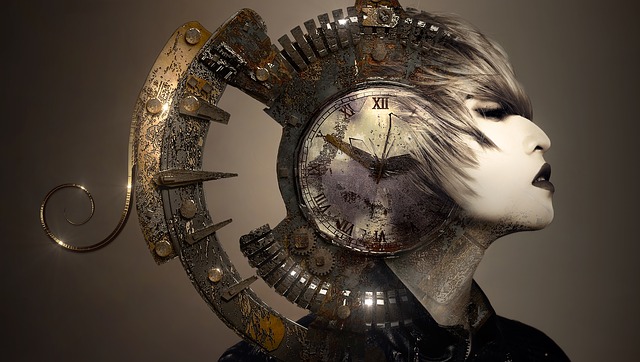January 8, 2018
The Timelessness of Experience
Remember a scene from your childhood: a movie that you saw for the first time, which made a lasting impression on you. Depending on how old you are, it might have been Gladiator, Apollo 13, Raiders of the Lost Ark, Jaws, or even something older. Try to remember how you felt watching it, who you were at the time; where you lived, how life was, how the space around you was; what kinds of thoughts you had at that age, what kind of hopes. Hold that thought. Let’s talk about the timelessness of that experience.

The Timelessness of Experiencing is the shuttering of temporal direction
Now fast-forward to the second time you saw that film, perhaps ten, twenty, or more years later. You were a different person, with different hopes, different fears, and surely in a very different life situation. Perhaps you still liked the film (or not), perhaps you felt a certain sense of nostalgia for the time you were a child, when you had first seen that movie. In any case, there was a certain temporal link between the two instances, going from the present (that is, the second time you saw the film, as an adult) to the past (the first time you saw it, as a child).
Now, I’m suggesting: What if you try to imagine the reversal of the arrow of time?
Semi-vicariously place yourself back in the time and space of your childhood. Remember seeing the film again, try to recall all the feelings described in the first paragraph, but now introduce a new dimension: Try to imagine how you would feel then, as a child, if you knew how life would be the second time you saw that film.
This exercise (which can of course be done with things others than films, such as songs, a magazine, a game, and so on) can be productive for a number of reasons, ranging from psychological reflection and enhancing a sense of self, to memory training and – for aspiring authors – to character development.
There is more, however.
What little exercises such as that reveal is the timelessness of experience. There is an abstract reality hidden beyond the – largely illusory – veil of time, which connects you as a child to you as an adult. It also connects both those “yous” with all other “yous” that have or will ever have existed. Moreover, these connective links (in our example, the film) form connections that are not only intertemporal, but also interpersonal. They connect not only you as a child with you as an adult, but all other people that have seen (or will ever see) the same film; or read the same magazine; or play the same video game.
In case you don’t realize the implication, it means that when you read the verses of Paradise Lost, there is “something” (the abstractness mentioned in the paragraph above) that links you and Milton.
I don't show you ads or newsletter pop-ups; everything is offered for free. Wanna help support a human internet?
